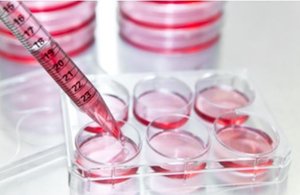
Regenerative Medicine
Regenerative medicine has the potential to transform healthcare and offers hope to many patients worldwide. New technologies are being developed to repair or regenerate injured and diseased tissues and organs and aid the development of new, targeted therapies.
Reducing endotoxins can help improve patient safety and research outcomes
Even at extremely low levels, endotoxins can have debilitating effects on cell culture, affecting adherence, growth and differentiation and mitochondrial function. For in vivo applications, endotoxins like LPS can significantly impact the immune system, modulate T cell function and affect neutrophil migration [1]
Key application areas within regenerative medicine:
- 3D Bioprinting
- Stem cell & Organoid Culturing
- Implantable Membranes
- Wound Healing
- Advanced Drug Delivery
These applications rely on safe, reliable and biocompatible materials. X-Pure® gelatins and collagens are ideal for in vivo use due to their proven reproducibility, versatility, purity, biocompatibility, cell-interactivity, tunable physical/chemical properties and biodegradability.
References:
[1] Magnusdottir, A., Vidarsson. H., Björnsson, JM., Örvar., BL. 2013. Barley grains for the production of endotoxin-free growth factors. Trends in Biotechnology. 31(10).
